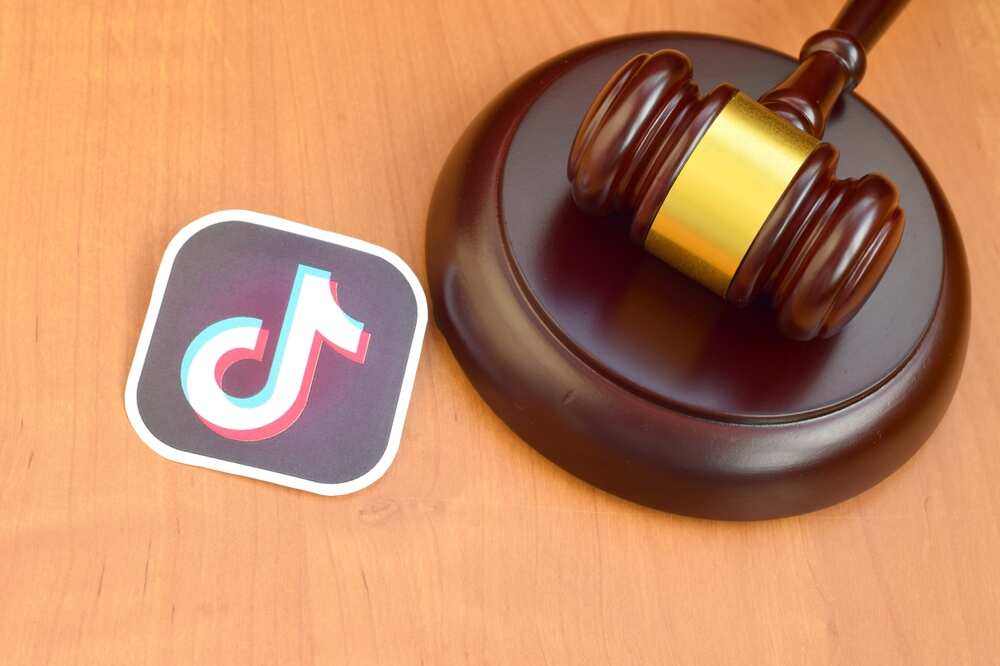Supreme Court Justices Roll Their Eyes at TikTok’s Plea: National Security Trumps Dance Challenges

In a move that surprises absolutely no one paying attention, the Supreme Court appears poised to uphold a federal law that would effectively ban TikTok in the United States unless its Chinese parent company, ByteDance, divests its ownership. This development comes after justices expressed skepticism toward TikTok’s arguments during recent oral hearings.
TikTok, the app best known for viral dance challenges and cat videos, has found itself at the center of a national security debate. The U.S. government, displaying a rare moment of bipartisan agreement, argues that the app’s Chinese ownership poses a significant threat. The concern? That the Chinese Communist Party could access the personal data of American users or manipulate the app’s algorithm to spread propaganda. Because, of course, what better way to influence a nation than through synchronized teenage dance routines?
During the hearings, U.S. Solicitor General Elizabeth Prelogar didn’t mince words, stating, \”We know that the PRC has a voracious appetite to get its hands on as much information about Americans as possible, and that creates a potent weapon here.\” She further emphasized that TikTok’s vast data collection could be exploited for \”harassment, recruitment, and espionage.\”
TikTok’s legal team, perhaps hoping to dazzle the justices with their own interpretive dance, argued that the ban infringes upon First Amendment rights. They contended that the app serves as a platform for free expression, and forcing a sale or imposing a ban would stifle that freedom. However, the justices didn’t seem particularly swayed by this performance.
Justice Clarence Thomas, known for his succinctness, cut to the chase, asking, \”Exactly what is TikTok’s speech here?\” A question that likely left TikTok’s attorneys wishing they had prepared a more compelling answer than \”Have you seen the latest dance challenge?\”
Chief Justice John Roberts chimed in, expressing concerns about foreign adversaries using platforms like TikTok to sow discord among Americans. \”If they do, I say, they’re winning,\” Roberts remarked, perhaps alluding to the countless hours Americans have lost to mindless scrolling.
Adding a layer of political theater to the proceedings, President-elect Donald Trump filed an amicus brief, urging the Court to delay the ban until he takes office. He suggested that his administration could negotiate a deal addressing security concerns without resorting to an outright ban. Because if there’s one thing we’ve learned, it’s that tech companies and government negotiations always go smoothly.
The law in question, the Protecting Americans from Foreign Adversary Controlled Applications Act, was signed by President Biden after passing Congress with overwhelming support. It mandates that TikTok either be sold to a U.S. entity or face a ban, all in the name of protecting national security. Because nothing says \”land of the free\” like the government deciding which apps you’re allowed to have on your phone.
Critics argue that this move sets a dangerous precedent, allowing the government to ban platforms under the guise of national security without concrete evidence of wrongdoing. Supporters counter that it’s a necessary step to protect citizens from potential foreign surveillance. After all, who needs personal responsibility when Big Brother can make your decisions for you?
As the January 19 deadline looms, TikTok’s fate in the U.S. hangs in the balance. Will ByteDance sell the app to a U.S. company, or will millions of Americans have to find a new way to procrastinate? Perhaps it’s time to dust off those old board games or, heaven forbid, read a book.
In the meantime, the Supreme Court’s impending decision will undoubtedly have far-reaching implications, not just for TikTok, but for the broader conversation about technology, privacy, and national security. Because when it comes to balancing freedom and safety, who better to decide than nine individuals in robes?
Stay tuned, America. The next viral sensation might just be a Supreme Court ruling.









